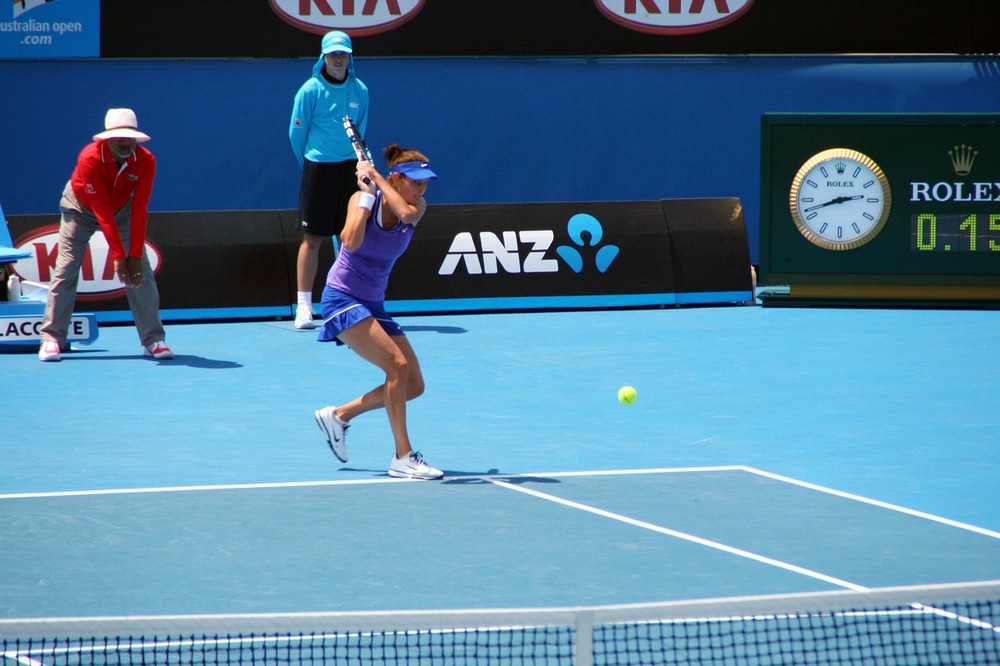Training Process
Mornings at Evert Academy begin with the coordinator clarifying the distribution of players on the courts, writing it all out on a piece of paper. And then throughout the day, during morning and evening practices, the coordinator keeps track of their movements, because, having completed one task, a player may be redirected to perform the next one on another court. Thus, a player may train with several different coaches during one day. At the same time, each student is assigned his own coach for individual lessons, who leads and supervises the player.
Usually guys train 5 days a week for 2 practices per day – an average of 5 hours of tennis. Plus fitness for 1-1.5 hours. The peculiarity of the training is a strict discipline – everyone works and does not rest for a minute until the “water break” is announced. A minute or two, and then everyone is back on the court practicing. Training always starts and ends strictly by the hour, although for some may be extended, if necessary.
Fitness can be fun.
And a mandatory part of the training process is a class or mental preparation. Several times a week students are brought together in groups to discuss various topics, such as “What sets me up for the match.” These are special classes, held indoors and on the courts, which help “clear” the head of unnecessary thoughts and help to fully focus on the game, while not losing concentration throughout the game. Each student also keeps a diary in which he or she records the main events of the day, both concerning tennis and everyday life, and evaluates them. These impressions are then discussed by each of them with their mentor, who is like a mentor for the player and who can be approached with any problems and at any time.
Chris Evert is present at training sessions quite often, except for periods when she works as a commentator at major international tournaments. Chris walks around all the courts, watching the training sessions, the coaches consult with her, she corrects something to the guys. She can take someone to the neighboring court and work with him on a problematic element. Kris herself considers this not a job, but a pleasure. Kris talked about how happy she is at her Academy in a short interview:
“I really, really love the Academy. John organized everything here. And I’m just here as a coach. I’m very happy with the coaches that we have here. And I get to play on the court with the guys, help them – that’s all I want to do. What I’m very happy about is that we’ve been able to provide all of our former students with scholarships. Getting a good education is very important.
We do have one problem that we are working on right now. For example, there are girls like Madison Keys and Lauren Davis. They trained with us from the age of 10 until they were 16 or 17. And then their professional career started and they needed a full time coach. And then our coaches had to choose whether to become personal trainers or stay on as Academy coaches. And the coaches made a decision and stayed with the Academy. And that’s where USTA helped, they had free coaches who could travel with the tennis players. But USTA only helps Americans. So now we are thinking about how to provide a training process for our juniors going into the professionals.

